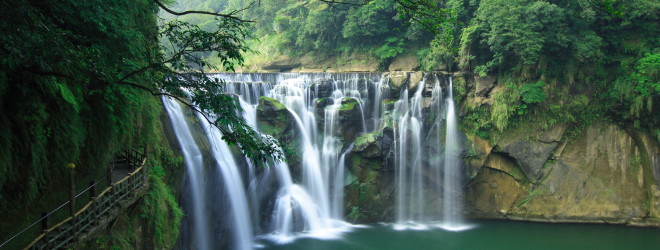For the past few years I have been getting consistent inquiries about what is figuratively called “alkaline ionized water”, also known as “electrolyzed reduced water” and “structured water”. Distributed under a variety of different brands, this type of water is purported to contain a number of health benefits. The water is made by an electrolysis unit (see patent here), which has a port into which either salt (NaCl) or calcium glycerophosphate can be added. Adding these materials to the unit increases the amount of dissolved ions in the water, and enhances its electrical conductivity. Running a current through the water allows it to be split into an acid and a base, the base being the alkaline water. If nothing is added to the water, the alkaline water will have a greater concentration of minerals naturally found in the water, which could include contaminant metals such as arsenic, copper, iron and lead (and a reason why filtered water is typically used in these units). Using table salt (NaCl) with purified water creates an alkaline water rich in sodium, which in chemical terms is called sodium hypochlorite, i.e. household bleach. If calcium glycerophosphate is used, the alkaline water will contain calcium. The patent claims that magnesium can also be obtained in the alkaline water, but this is only possible if some kind of magnesium salt is added to the water, or comes from the unit itself (anode/cathode?). These devices typically allow the user to adjust the pH and raise or lower it as desired. These units typically sell for thousands of dollars, despite the fact that they operate on a very simple principle that has been employed in chemistry since the 1800s. Of course companies can price their units for whatever they think the market can bear, but in my estimation there is no way an electrolysis unit should cost several thousand dollars. When I consider the technology and materials involved, the most these units should cost is maybe a few hundred dollars.
Which brings us to the claims. Enthusiastic supporters of alkaline ionized water claim a number of health benefits from the regular consumption of this product. Part of their enthusiasm for the product is surely related however to the fact that this unit bought and sold as part of a multi-level marketing (MLM) scheme. With alkaline ionized water water there is always a sales push, and this makes me immediately suspicious. Nonetheless, supporters enthusiastically reference scientific articles (see here for examples), but after reviewing these articles I wasn’t impressed. At best, this research is very preliminary, involving test tubes and rats, measuring parameters that aren’t all that important or convincing. For a real scientist there is no “wow” factor here. In many cases the science isn’t even from scientific journals, but are “quotations” from supposed “experts” without any way to verify the source or analyze the data. It all becomes a little suspicious.
The reasoning behind drinking alkaline water is the claim that our bodies are too acidic, a claim often promoted by practitioners in my industry, but has no basis in any kind of science. Don’t get me wrong – I have a lot of room for non-scientific sounding claims. For example, I practice Ayurvedic medicine, which is the oldest continuously practiced system of medicine on earth. It uses a system of logic that is entirely different from Western medicine, but yet has a long empirical tradition that can be validated by medical testing. This is entirely different from using scientific terms such as “acid” and “alkaline”, and then not understanding what they mean. For example, the body is neither acid nor alkaline – some tissues are naturally more acidic, such as the stomach, whereas others are more alkaline, such as the oral cavity. The blood is slightly alkaline at a pH of between 7.35 and 7.45, and the body will go to great extremes to maintain this balance. Some diseases such as gout, or ketoacidosis of diabetes, are marked by a decrease in blood pH, but generally the blood maintains its delicate pH through a number of mechanisms involving a complex array of regulatory systems involving the liver, lungs, kidneys, thyroid, muscle, bone, etc. etc. But chief among the ways to NOT alkalize your blood is by drinking alkaline water. Can you imagine the impact on your blood if you could alter its pH simply by eating anything acid or alkaline? Do people go into acidosis when they drink lemonade or put some vinegar dressing on their salad? No! Although you might think that by drinking alkaline water you are making your blood more alkaline, in fact all that is happening is that your body secretes enough acid to neutralize the pH of the water. Thus it seems very unlikely that alkaline water can make the blood more “alkaline”.
The last set of claims with regard to alkaline water comes from Ray Kurzweil, in part, from a book he co-wrote called Fantastic Voyage, wherein he claims that alkaline water is necessary for good health. On another website, an interview purportedly with Ray Kurzweil is transcribed, wherein Mr. Kurzweil makes a claim that alkaline water has a high oxidation reduction potential (ORP). This means, according to Kurzweil, that alkaline ionized water has a profound ability to scavenge free-radicals. But there is no evidence that the high negative ORP of alkaline water is maintained once it is absorbed. It’s just a thesis with no evidence to back it up. Mr. Kurzweil also claims that these units produce something called “structured water”, but doesn’t provide much evidence of this or how it impacts your body. In fact, this is an entirely new area of research with still much to be learned. One of the leaders in this field is Dr. Gerald Pollack, professor of bioengineering at the University of Washington. Dr. Pollack indeed has some very revolutionary things to say about water and its structure, and his lecture is worth listening to. But I have seen nothing in Dr. Pollack’s work that validates the specific claims of the pro-alkaline water crowd, and his research is only referred to very tangentially to bolster their arguments.
If there is any benefit to alkaline water, it could be that alkaline water might contain more minerals, i.e. ions, but this depends on the minerals already in or added to the water. Adding minerals often deficient in the Western diet such as magnesium could be helpful, but this could just as easily throw off the delicate mineral balance of the body. I review this issue and the issue of water quality generally in my new book Food As Medicine: The Theory and Practice of Food. If you want to get to the bottom of the issue, and how to guarantee the best source of water for you and your family, please buy a copy of my book. I believe the solution lies in simple, cost-effective measures, not suspect counter-top appliances that cost thousands of dollars.



So what type of water do you recommend people drink? What do you think of spring water? What about the various water filters on the market?
Hi Chris… this IS covered in my book 🙂 But in short, the best water is either glacial water or artesian well water. I provide a number of reasons for this in my book. For people living in cities carbon-filtered municipal water is fine, but where the water has a risk of fluoride or heavy metal contamination I recommend reverse osmosis filtration. Water quality needs to be assessed on a case by case basis. The more severe the treatment method however, the more active of a solvent the water becomes. Epidemiological research suggests that the healthiest water is water naturally rich in minerals, and so I recommend using water that has been mineral-enriched through herbal teas and soups, or with the addition of ionic trace minerals. Simply drinking 2 liters of soft, filtered water on a daily basis is not optimal for health. As for other treatments to water, such as spiral tubing, crystals, sunshine, etc. – I believe they all some kind of effect: but exactly what effect is still largely unknown. Some are better known than others. For example, Ayurveda mentions how exposing a clear glass jar of water to the rays of the sun and moon over a 24 hour period can help to purify and augment its healing effects. In my book I provide scientific evidence that validates this technique. But where the method is costly, and has neither tradition nor scientific evidence to back it up, I think that it fails as a method of water treatment.